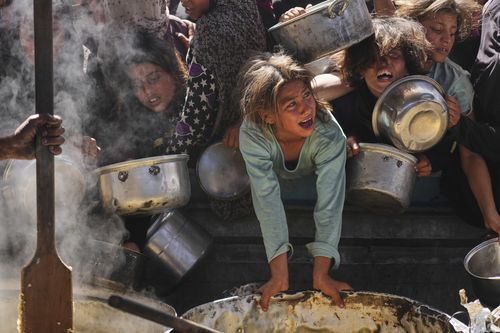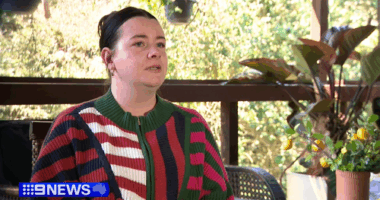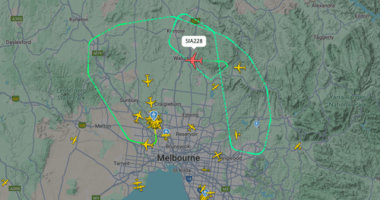Share this @internewscast.com
Tuesday’s actions followed the condemnation by the UK, France, and Canada of Israel’s handling of the conflict in Gaza and its activities in the occupied West Bank.
Foreign Secretary David Lammy stated that while the UK’s existing trade agreement remains effective, further discussions cannot proceed with an Israeli government pursuing egregious policies in the West Bank and Gaza.

Lammy said the persistent cycle of violence by extremist Israeli settlers in the West Bank demanded action.
“The Israeli government has a responsibility to intervene and halt these aggressive actions,” Lammy said.
“Their consistent failure to act is putting Palestinian communities and the two-state solution in peril.”
This announcement came after British Prime Minister Keir Starmer intensified his criticism of Israel, labeling the suffering of children in Gaza as “utterly intolerable” and reiterating his call for a ceasefire.
“I want to put on record today that we’re horrified by the escalation from Israel,” Starmer told the UK’s parliament.
His brief remarks followed a scathing joint condemnation he issued on Monday with French President Emmanuel Macron and Canadian Prime Minister Mark Carney that marked one of the most significant criticisms by close allies of Israel’s handling of the war in Gaza and its actions in the West Bank.

The three leaders threatened to take “concrete actions” if the government of Israeli Prime Minister Benjamin Netanyahu did not cease its renewed military offensive and significantly lift restrictions on humanitarian aid. Netanyahu said the statement was “a huge prize” for Hamas.
Starmer repeated the trio’s demand for a ceasefire, saying it was the only way to free the hostages Hamas still holds. He also called for increased shipments of humanitarian aid into Gaza, saying the basic quantity allowed by Israel is “utterly inadequate”.
“We must coordinate our response, because this war has gone on for far too long,” Starmer said.
“We cannot allow the people of Gaza to starve.”
International pressure has been building on Israel following a nearly three-month blockade of supplies into Gaza that led to famine warnings. Even the United States, a staunch ally of Israel, has voiced concerns over the growing hunger crisis.

While Israel allowed trucks with baby food and desperately needed supplies to begin rolling into Gaza on Monday, UN humanitarian chief Tom Fletcher described the volume of aid a “drop in the ocean of what is urgently needed”.
Israel initially received widespread international support to root out Hamas militants following the group’s surprise attack that killed some 1,200 people, mostly civilians, on October 7, 2023, and took 251 captives.
But patience with Israel is wearing thin after more than 53,000 Palestinian deaths, mostly women and children, according to Gaza’s Health Ministry, which doesn’t differentiate between civilians and combatants in its count. Israel’s latest onslaught has killed more than 300 people in recent days, local health officials said.
In recent weeks, Macron intensified diplomatic efforts to put pressure on Israel, urging a ceasefire and calling for lifting the blockade of humanitarian aid.

Women, children killed as Israel breaks Gaza ceasefire
Last month, Macron said France should move toward recognising a Palestinian state, possibly in June when France and Saudi Arabia are co-hosting an international conference about implementing a two-state solution. The comments came after a visit to Egypt during which he met with injured Palestinians at El Arish hospital.
Macron, who has said that recognising Palestine is not a “taboo” for France, last week suggested that revisiting the EU’s cooperation agreements with Israel is on the table.
Tensions between France and Israel have escalated after Macron called for stopping arms deliveries for use in Gaza in an October radio interview, prompting Netanyahu’s strong criticism.
France also sought to impose a ban on Israeli defence companies to prevent them from exhibiting weapons at the Euronaval trade exhibition.














